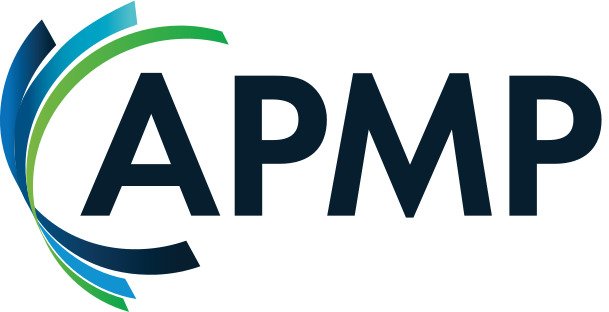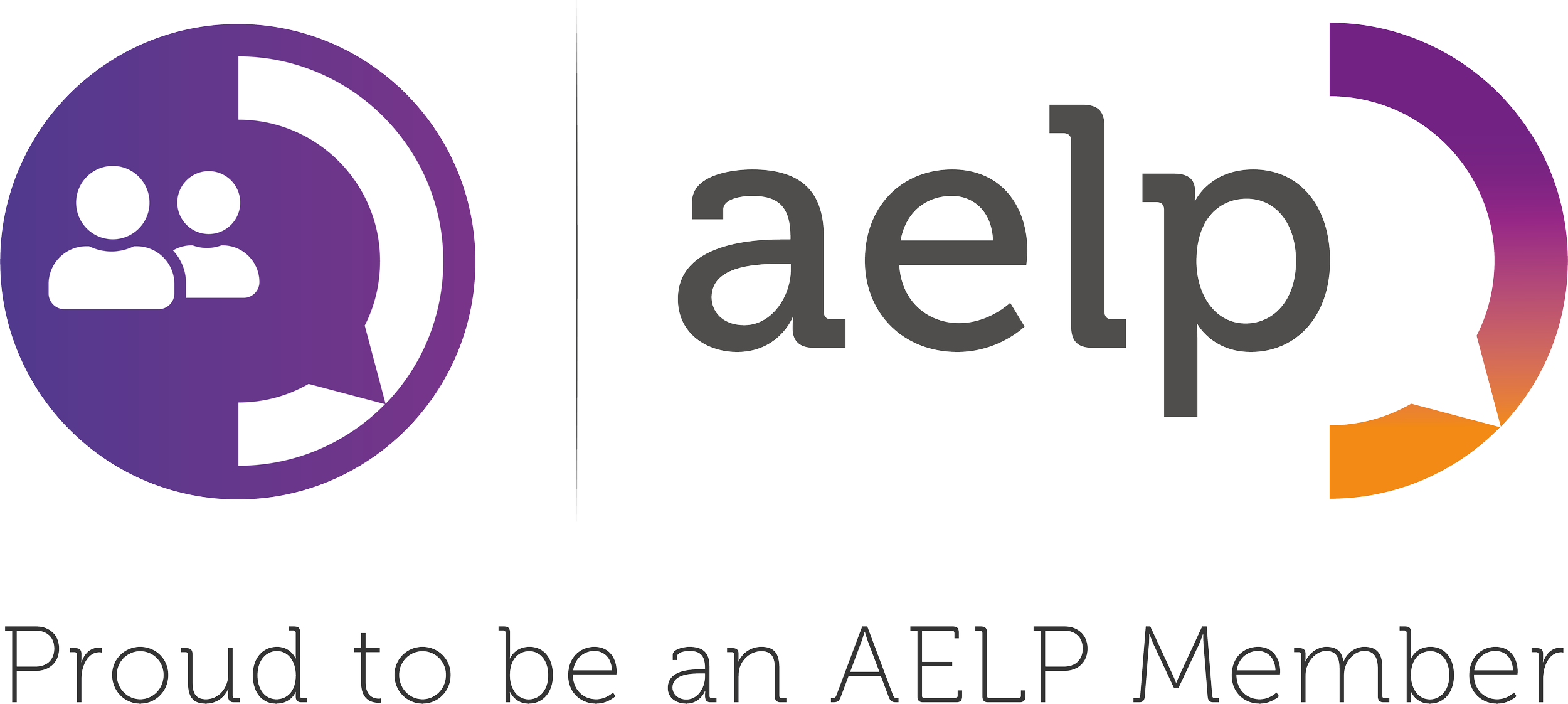
Access to Provision
Successful bidders demonstrate how they:
Strategically select fixed/outreach delivery centres nearby target learner communities and public transport routes, minimising travel time for learners.
Deliver provision in premises that are compliant with the Equality Act 2010, health and safety vetted, and risk assessed to ensure suitability for all learners.
Provide evening and weekend classes, giving flexibility for learners who work shifts, standard business hours (9-5), and/or are lone parents.
Provide learners with 24/7 access to a virtual learning environment (VLE) to facilitate remote learning, giving learners access to livestreams and video recordings of classes, tailored support material, practice exams, a live job board, and so forth.
Use platforms such as CognAssist to provide learners with learning disabilities with additional support.
Work with learners to agree additional support plans as part of their ILPs, including specific travel-related arrangements e.g., providing a mini-bus service and bursaries for local taxi services or travel support cards/schemes.
Work with learners and their JCP Advisors to reimburse travel costs, where applicable.
Have established links with local learning disability services, who have specialist staff and diagnostics to identify issues including dyslexia, autism, mobility difficulties and ADHD, helping them implement support mechanisms.
Courier resources to the homes of residents who cannot access delivery centres, and provide daily support calls to learners with additional support plans.

Assessing and Meeting Individuals’ Needs
Successful bidders demonstrate how they:
Accurately identify learners’ needs via initial assessments, during which literacy/numeracy needs are identified via diagnostic assessments and preferred learning styles assessed via psychometric testing.
Provide learners with impartial IAG throughout and post-provision, delivered by L4 qualified IAG Advisors, and record actions/goals in their ILPs during progress reviews.
Develop tailored ILPs that are informed via assessment results, prior attainment, identified additional support needs, work history, job goals, reviews, and progression plans.
Offer comprehensive pastoral support, including 1:1 IAG sessions and signposting to specialist organisations to help with issues such as drugs/alcohol, finance, housing, and travel.
Establish partnerships with local colleges for ESOL programmes and use differentiated teaching and assessment methods.
Develop Additional Support Plans for learners requiring additional support, including travel support (e.g., bursaries for taxi services) or adjustments to delivery e.g., 1:1 tuition, alternative assessments, special exam conditions, and adapted resources e.g., braille, yellow-coloured paper (Dyslexia), and large print.
Provide learners with an employability masterclass prior to technical training, including interview techniques, CV writing, and masterclasses on behaviours and perceptions - delivered in-house or via National Career Service workshops.
Ensure all of their staff hold Level 4 Certificates in Supporting the Learning of Learners with SEND.
Continually assess learners’ needs through 1:1 progress reviews, which are recorded in ILRs and reviewed monthly to assess effectiveness and identify any emerging needs such as mentoring, coaching, mental health advice, and signposting e.g., to childcare provision.

Successful bidders demonstrate how they:
Effectively plan curriculums using internal performance data and findings; labour market information; ONS and Indices of Deprivation data; stakeholder feedback e.g., JCP, local authorities, NCS, LEPs, and referral partners; findings of employer engagement activities; and learner voice.
Map predicted learner demand across regions by drawing on the above data sources, including learner demographics, helping them to target provision.
Operate a Curriculum Panel, including senior management and thematic leads e.g., quality, business development, and learner engagement, to holistically review information and set clear actions and accountabilities.
Describe their rationale and intent of delivery proposal, relating to the priorities that a funding stream seeks to address (e.g., AEB) and the current socio-economic climate e.g., post-COVID and cost of living crisis.
Curriculum Design and Intent
Work collaboratively with Awarding Organisations on new curriculum development, jointly exploring qualifications to meet requirements and build and launch new funded programmes.
Conduct Organisational Training Needs Analysis (OTNAs) with local employers, to evaluate skills/knowledge requirements and gain a detailed understanding of recruitment forecasts.
Produce aspirational curriculums that support on- and post-programme motivation by contextualising learning to learners’ chosen career progression routes; providing taster sessions to other higher-level programmes; and employer presentations to reinforce the opportunities to progress post-completion.
Organise virtual hiring events for learners with their employer base, in which vacancies, required skillsets/qualifications, the interview process, and how to apply are discussed.
Facilitate transition into sustained employment via exit reviews, guaranteed interviews with employers, work experience and job taster sessions, acquiring licenses to practice, and continued wraparound support.

Data Management and Protection
Successful bidders demonstrate how they:
Securely collect, process and store data in compliance with the Data Protection Act 2018 and their Privacy Policy for learner data, using firewalls, independent VLAN, multifactor authentication, password-access controls, encryption, and patch controls.
Are ICO-registered and hold ISO 27001 and Cyber Essentials Plus certification, assuring Buyers of their adherence to information governance requirements.
Have IT personnel who have achieved CompTIA Security+, hold Certified Ethical Hacker certification, and are CISSP certified.
Implement robust data back-up procedures e.g., automatic data back-ups, storing files in a separate file store database, use of remote servers, and server snapshots.
Regularly maintain their MIS to ensure validation rules are met alongside additional requirements e.g., DAM codes and evidence that they use funding in full compliance.
Use qualified cloud service providers to conduct regular penetration testing of their MIS, covering applications, infrastructure, unauthenticated external attacks, social engineering, and unauthorised data access.
Restrict user assess to physical data via key-fob systems (which require access approval from a Senior Manager), which are securely stored in locked filing cabinets and archive rooms.
Capture financial data to support claims and requirements via ILRs held in their MIS. The data is then compared against delivery plans/forecasts and contractual requirements, supporting their zero error rates in financial claims and zero financial clawback.

Learner Journey
Successful bidders demonstrate how they:
Engage learners via promotional campaigns alongside targeted engagement activities, such as holding outreach events; working with the likes of JCP, Work Coaches, NCS Advisors, NEET Youth Workers, and WHP providers; and participating in peer support networks and recruitment events.
Use initial assessments to identify learning/support needs, conduct eligibility checks, and discuss career aspirations, prior learning/work experience, preferred learning styles, and wider personal commitments.
Embed Matrix-accredited and impartial IAG throughout and post-provision, informing learners of career opportunities, supporting CV production, job applications, interview preparation, and resilience training.
Co-develop comprehensive ILPs with learners and employers, which establish a baseline of capability and SMART growth targets, programme details, any additional support required, and intervention strategies.
Assess additional learner support during 1:1s, using specialised software (e.g., LADS Plus) to help identify any learning difficulties/disabilities.
Bespoke additional support plans are created to eliminate any barriers to learning, with comprehensive wraparound support delivered by L4 qualified IAG Advisors.
Produce tailored, interactive lesson plans, ensuring teaching is culturally inclusive e.g., ensuring provision is understandable to ESOL learner groups and draws on their prior knowledge, educational experiences, and cultural reference points.
Deliver modern learning experiences via case-based scenarios and workplace simulations, using technology such as virtual reality.
Implement a blended delivery model, combining in-person and distance learning to give highly flexible provision that builds group working, communication, and digital skills alongside technical knowledge.

Management and Reporting
Successful bidders demonstrate how they:
Use management information systems (MIS) to effectively collect, prepare, and submit ILR data and other information to buyers/ESFA, conforming to ESFA Funding Rules and financial audit assurance requirements, Home Office data requirements, and local AEB requirements.
Collect and retain data in compliance with the latest Funding and Performance Management Rules and accordance with their Document Retention Policy.
Create bespoke data capture forms for each funding stream using their MIS, used during 1:1 reviews and other engagement activities.
Conduct monthly spot-checks of collected data, ensuring it meets eligibility requirements before submission, and annually test their MIS for compliance with ISO 27001.
Use ESFA tools to mitigate errors in data, such as PDSAT, PLR CHECKS (national learner record checks for double funding check), and FIS to check double funding, maintaining their 0% error rate on ILR claims.
Reconcile weekly performance against collected information, data validation, and testing prior to submission, and can access current and projected achievement rates, giving early indication of a potential fall in achievement rates.
Report on different delivery models with different buyers via their MIS, helping them to effectively manage performance across multiple contracts.
Create unique project codes via their MIS, avoiding the risk of double funding and ensuring integrity of reporting.
Develop robust resource management plans, outlining required resources, standards (e.g., engagement-to-start lead times and staff/learner ratios), and quality e.g., OTLAs, sample audit checks on ILRs/ILPs, and developing SARs and QIPs.

Meeting Local Needs
Successful bidders demonstrate how they:
Ensure their curriculum reflects the skills priorities of local buyers’ strategies and plans, remaining mindful of the underlying indicators used by buyers, so they can predict future needs beyond current priorities.
Use data from the Indices of Deprivation, NOMIS, and ONS to target support to learners from local wards with high deprivation and underrepresented groups e.g., BAME, females, 50+, disabled, and lone parents.
Merge with local authority and college offers, including taster modules in next-step training sessions to build learner confidence/motivation for continued learning.
Conduct organisational training needs analysis (OTNAs) of local employers, so learners gain in-demand skills to help narrow local skills gaps.
Work collaboratively with learners and local employers to ensure their curriculum addresses current employment opportunities and future skills demand e.g., by holding quarterly sector-specific employer/stakeholder steering group meetings.
Attend local unemployment forums, industry conferences and establish relationships with local councils and LEPs, gaining insight into future skills needs whilst meeting their goals.
Recognise local issues and state how they will address these e.g., competition from inward commuters, skills needs linked to major infrastructure projects, reliance on migrant workers, and 19-year-old NEETs lacking basic skills/qualifications.
Consider wider local area data to support their offer e.g., employing bilingual tutors to meet increasing ESOL demands locally.
Build powerful local referral networks with FE providers, VCSEs and JCP to accelerate referrals and support handover.

Mobilisation
Successful bidders demonstrate how they:
Develop a comprehensive resource plan to align existing/required staff numbers with the Standard National Profile and anticipated volumes, with a contingency of staff to ensure continued delivery.
Update existing staff skills/knowledge in alignment with buyers’/Awarding Organisation’s/Ofsted’s standards.
Run strategic marketing/engagement events e.g., tailored social media campaigns, outreach events in deprived areas, and distributing leaflets/posters in local areas with high footfall e.g., shopping centres, gyms, and leisure centres.
Conduct health and safety, risk, and accessibility checks of all fixed and outreach delivery centres prior to contract start, ensuring compliance with the Equality Act 2010.
Review each delivery location’s capacity to align with forecasted learner volumes and proximity to target communities and public transport routes.
Re-configure their IT systems, such as their MIS, in line with contract specifications and funding stream requirements.
Conduct thorough due diligence checks of subcontractors to ensure their capability and capacity to deliver provision, capacity profiling for all existing and pipeline business.
Collaborate with local Chambers of Commerce and LEPs to support the engagement of learners and steer delivery to align with growth/priority sectors.
Regularly review their business continuity policy, in which they consider their ability to expand class sizes in the event of staff absences (e.g., changing staff-to-learner ratios and/or drawing on a bank of reserve staff).

Performance and Achievement
Successful bidders demonstrate how they:
Track learner progress via their MIS, which provides rich performance data by sector skills area and learner characteristics.
Use their ILR-compliant MIS to submit performance data to Combined Authorities via ESFA’s ILR system, and the National Achievement Rate Tables (NARTs) to benchmark their performance against other FE institutions nationally.
Implement timebound action plans to address underperformance trends, including profile reviews, upskilling staff to fill emerging needs and ensure learners receive current industry-standard knowledge, and process revisions to ensure learners/employers fully understand their responsibilities.
Use data dashboards to inform decisions and appraise staff performance, flagging any issues to senior management.
Conduct quarterly graded OTLAs, which feed into their SAR and provide qualitative evidence of teaching alongside learner/employer feedback via entry/mid/exit surveys.
Record key themes identified during performance data reviews in their Quality Improvement Plan (QIP), which is reviewed quarterly by senior management to ensure suggestions for improvement are reviewed and actioned, if necessary.
Assign each buyer a Contract Manager, who is responsible for communicating performance against KPIs/SLAs, any trends towards underperformance, and performance improvement plans.
Upskill staff via standardisation training and CPD courses to fill emerging skills gaps, ensuring all learners receive current industry-standard knowledge.
Integrate technology into their offers, giving learners more flexible learning pathways which also prepare them for a modern, digitally-enabled workplace.

Social Value
Successful bidders demonstrate how they:
Effectively implement their social value policy during contracts, using ISO 26000 as a framework.
Work with communities to increase assess to health interventions and community-based wellbeing initiatives, such as promoting free NHS health checks that are available in high-street pharmacies.
Embrace the social value outcomes outlined in PPN 06/20.
Deliver work-based learning and conduct talks to local schools and colleges, inspiring the next generation into their industry.
Procure products and services directly with local businesses/SMEs, such as office equipment, venue hire, recruitment services, legal / accountancy services, and general supplies.
Use tools such as The Social Value Portal’s National TOMs, to quantifiably measure their social value commitments.
Are committed to tackling societal issues such as homelessness by partnering with homelessness charities and housing associations, linking with local, complementary projects.
Build the capacity and sustainability of local VCSEs by contributing hours of business planning support, financial advice, legal advice, and/or HR advice via an employer-supported volunteering (ESV) scheme.
Establish a social value committee, who meet monthly to monitor social value progress in contracts.
Directly employ local apprentices and full-time staff within their organisation, paying all staff the National Living Wage or higher.
Promote environmental sustainability by implementing their carbon reduction plan, which includes measures such as switching to sustainable energy tariffs; carbon offsetting; conducting lighting audits of delivery centres; and participating in cycle-to-work schemes.
Our E&T Model Answers
From our analysis of over 4,050 E&T tender questions, we recorded a clear pattern of repetition – most buyers want to know the same things about bidders, such as their approach to meeting local needs, learner journeys, and social value.
Our E&T model answers condense winning features from these bids, ensuring you answer tender questions with the best content possible.
The Value of Our Model Answers
Our model answer packages will save you time and costs whilst growing your profit. They are approximately 3x faster than conventional bid writing services, based on client experience.
If you were winning 3/10 bids, you will now win 9/30 bids with the same overhead, due to faster production.
Clients switching to our model answers have also experienced a 30% increase in bid success on average. Those winning 9/30 bids now win 12/30 bids.
With no change in resource and price, you can go from 3 contract wins to 12 contract wins.

Bespoke Bid Writing
Win education and training contracts through our no-win no-fee and success-based fee offers.
We understand what Buyers want to see in winning bids and know how to present that information concisely and effectively. Every bid our clients submit is backed by proven, winning content.
£2 billion
Contract value we have won for our clients.
Your answers will draw on our unrivalled collection of model answers, best industry practice, local strategies/plans, and be fully aligned with the award criteria, maximising your scoring potential.
We understand the risks/challenges bidders face in producing winning bids, and we are confident in the quality of our work. Therefore, we offer no-win no-fee and success-based fee options to qualifying bidders.
Our wholistic end-to-end service will support every aspect of your bid, providing an invaluable double-check of and positive challenge to your bid.
We combine our sector knowledge and bid expertise to consistently create winning bids for our clients.
Expertise you can rely on
We study best practice and draw information from published reports and white papers by sector bodies, including the ESFA, DfE, Ofqual, and Ofsted. We also leverage our membership of AELP and integrate established and innovative approaches into our model answers and clients’ bids, ensuring they remain informed, up-to-date, and fully aligned to buyers’ requirements.
We employ APMP-qualified bid professionals with vast subject matter expertise and experience. From the AEB funding rules to the DfE’s Skills for Jobs white paper, we ensure your AEB bids are informed, up-to-date, and fully aligned to commissioners requirements.
We also employ senior bid experts who are APMP Mentors, helping to shape and move the bidding industry forward.
You will benefit from strategic conversations with our bid experts about key E&T question themes e.g., curriculum design & intent, delivery models, and learner journeys, making certain your bid delivers in every scored aspect. Our bid team will review each bid in isolation, benchmarking it against the marking criteria and best practice, to ensure your bid scores maximum marks.









Using AI to Enhance Our Model Answers
Our application of AI-driven software supports the winning content of our model answers, resulting in informed, excellent responses to tender questions.
We use AI-powered software to extract, cleanse, and aggregate bid-related data from websites and collate the information for review. Our team of bid professionals then assess the value of the collated information and integrate this into our model answers appropriately, using their extensive knowledge and subject matter expertise.
We also use AI-powered software to monitor any changes/updates to the information we draw from. This includes evolving best industry practice; updates to relevant legislations, standards, and regulations; and newly published white papers and reports. We monitor hundreds of sources daily across multiple industries to keep our model answers up-to-date and highly competitive.
Our use of AI-driven software, coupled with the content of winning bids, is unprecedented and unrivalled. We are revolutionising the way business is won, all to the benefit of our clients.
Using portals to strategically identify and select tenders
How to effectively make bid/no bid decisions
Understanding, meeting, and exceeding the buyer’s requirements
Creating and implementing win themes
How to use our unrivalled collection of model answers
How to storyboard each of the key sector themes buyers commonly ask questions on
How to effectively use tender documents to ensure compliance and enhance your answers
Quality assuring each stage of your bid production process
Our training and mentoring service will provide you with the tools, methods, and advice to successfully and consistently create winning bids. We cater for all levels of bidding experience and tailor content to your organisation, sector, and needs.
Our training and mentoring service is engaging, relatable, and informative. Examples of content we have delivered through our service include:
Training & Mentoring

Outsourced Bid Teams
Our outsourced bid team service offers clients exceptional quality in an extremely flexible format.
We provide bid writers, bid managers, bid coordinators, and subject matter experts.
£252 : £1
Average ROI of our clients for every £1 invested
Our pay-as-you-go model enables you to turn resources on and off in-line with your bidding needs, providing cost-effective operational flexibility.
Bid Software
Bid software is your catalyst to winning more work whilst saving money and time. From selection and implementation to managing and integrating your model answer package, we will guide you every step of the way.
Our competency and experience with bid software is second to none. Having worked with over 100 bid software providers, we are experts in understanding what is on offer and what will provide you with what you need or have been wanting.
Centralised dataflow, cloud-based operations, intelligent search engines, seamless integration of our model answers, Microsoft Word editing, intuitive dashboards, and data protection are just some of the functions and features we can provide.
Request a call back
Please fill out the contact form if you have any questions or queries. Alternatively, email us at client.services@tenderanswers.com.
Adding Value Through Cross-Sector Expertise
We add value to our model answers and bespoke bid writing services by drawing applicable best practice from other sectors, such as construction, construction professional services, and staffing & recruitment. Our unique cross-sector expertise enables us to take ideas, insights, technologies, systems, processes, and procedures from one sector and apply them to another. This helps our clients bridge knowledge gaps, accelerate their learning curve, and stay ahead of their competitors.
By working across multiple sectors, our bid experts see trends before they develop and identify opportunities for new, improved ways of working. This enables our clients to develop innovative approaches to their work, helping them achieve higher levels of efficiency, stand out above their competitors, and win valuable contracts more often. Additionally, through our cross-sector expertise, we continue to help our clients diversify by identifying new revenue streams, partnerships, and business models, futureproofing their businesses.



















